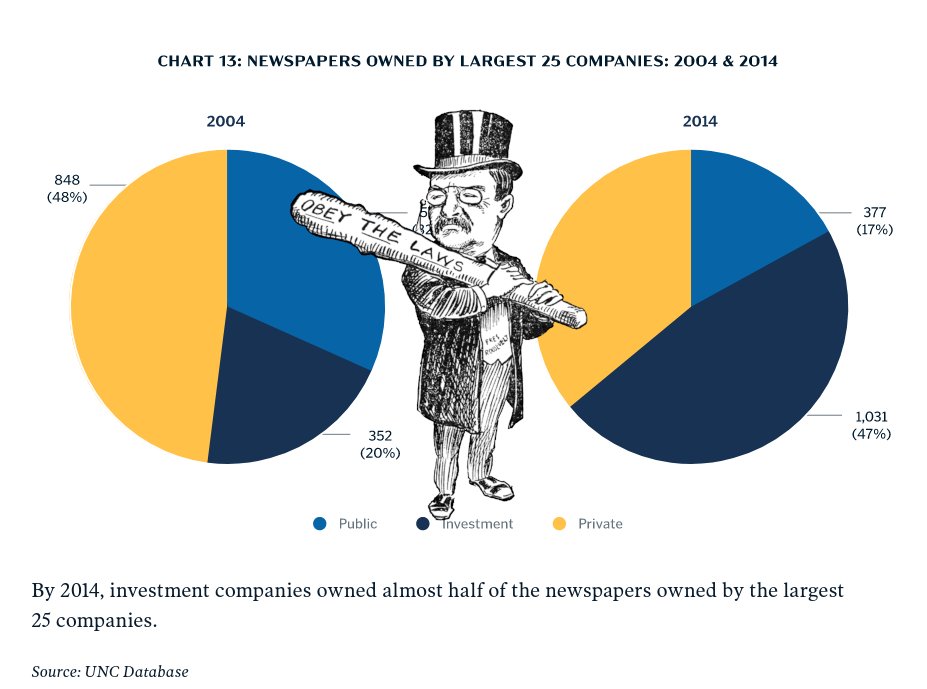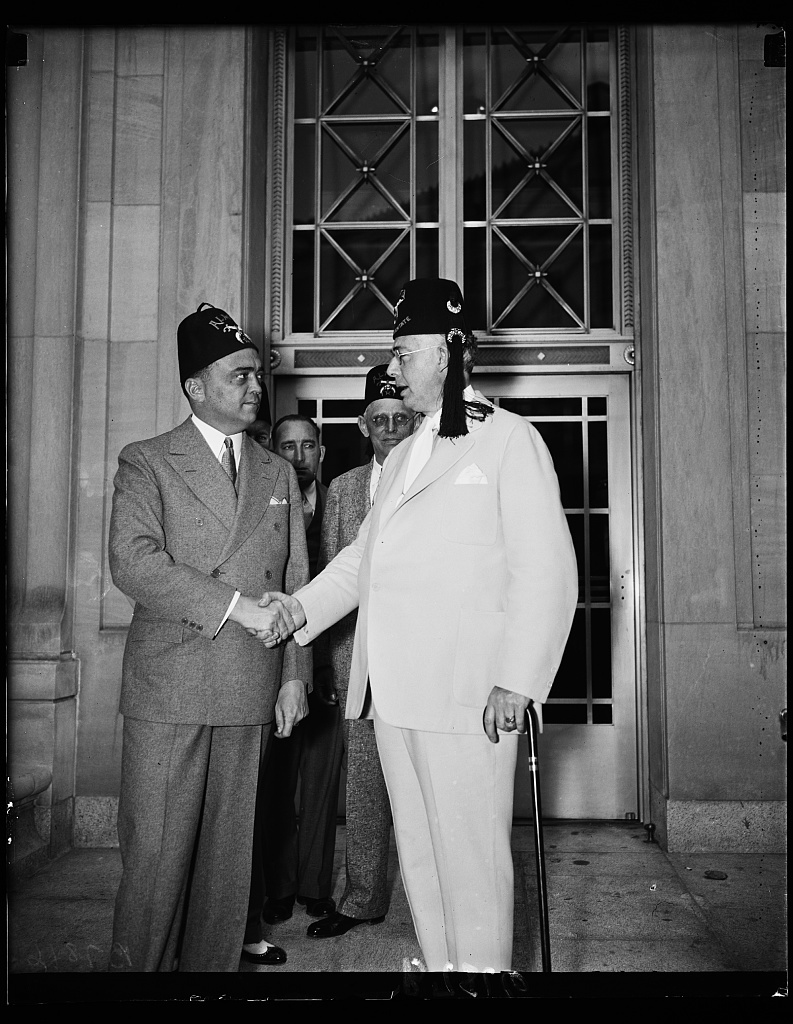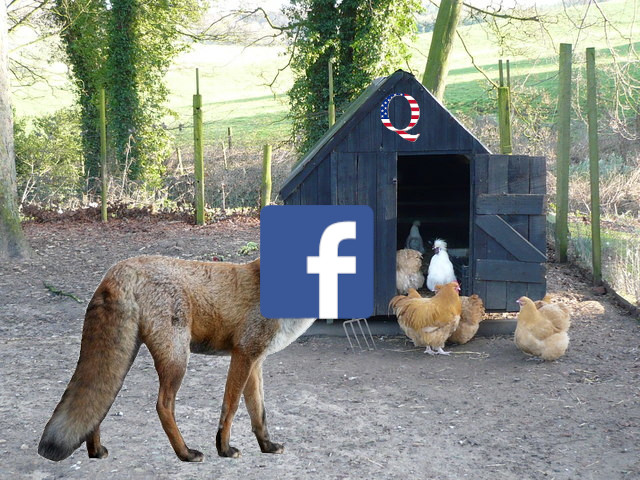
Despite the massive triumphs of the world's largest corporations and most rapacious billionaires during the covid crisis, neoliberalism is in ideological retreat: more people are more critical of the idea that "free markets" can solve big problems than at any time in my life.
1/
1/

The Democratic nomination race was a fight between the neoliberal wing of the party and the Democratic Socialists, with the candidates representing a spectrum between those two sides (and the odd outlier on either side).
2/
2/
Supposedly, the party grandees brokered peace between the two main factions, but the left is rightfully suspicious about whether Biden - and Republicans-who-sit-as-Dems like Joe Manchin - will deliver anything beyond symbolic gestures.
3/
3/
One bright spot: Bernie Sanders is finally chairing the Senate Budget Committee, giving him enormous power over muscular covid relief packages, Medicare expansion, and rolling back Trump and Bush tax-cuts on the super-rich.
nytimes.com/2021/01/12/us/…
4/
nytimes.com/2021/01/12/us/…
4/
This is where Sanders' long experience in the Senate, and his virtuoso work using its procedures to advance his position, will serve him well. As we saw with McConnell, the ability to wield procedure is a powerful asset in getting stuff done.
5/
5/
Sanders knows all the dirty tricks that the Senate majority leaders used to sink his efforts, AND he knows all the countermeasures that work against those tricks. He will be a force to be reckoned with.
6/
6/
Beyond key appointments, a key test for the Biden administration will be its posture on antitrust, the area of economic doctrine that has been most transformed by the debate over capitalism.
7/
7/
40 years ago, Reaganites managed to convert antitrust from a POLITICAL doctrine to an ECONOMIC one: rather than asking whether a monopoly would pervert good policy for workers, citizens, and institutions, antitrust narrowed to asking whether monopolies were raising prices.
8/
8/
Antitrust enforcers stopped listening to workers who'd been laid off or had their wages cut. They stopped listening to customers who got worse products and less choice. They stopped listening to entrepreneurs who were frozen out of the market by predatory monopolists.
9/
9/
The only people they'd hear from were duelling economists with impenetrable equations that supposedly represented the likelihood that a monopolist was hiking prices. Strangely, these models almost never showed that rising prices could be attributed to monopolies.
10/
10/
The GOP antitrust wreckers called themselves the "Chicago School" for the University of Chicago economics department that served as their cult headquarters. The Dems had "post-Chicago School" antitrust, who were effectively indistinguishable from the Chicago School.
11/
11/
When Obama ran for office in 2007, he promised real action on antitrust. Taking office in the midst of the Great Financial Crisis, Obama had the unprecedented opportunity to make good on those promises.
That's not what he did.
12/
That's not what he did.
12/
A new report from the @econliberties, "The Courage to Learn: A Retrospective on Antitrust and Competition Policy During the Obama Administration and a Framework for a New, Structuralist Approach," is comprehensive on the Obama admin's failures.
economicliberties.us/wp-content/upl…
13/
economicliberties.us/wp-content/upl…
13/
The Obama admin oversaw massive concentration in healthcare, transport, defense contracting, entertainment, media, tech, agribusiness, and other key US industries. At the time, officials boasted of their record.
14/
14/
Today, as public opinion (and lawmaker priorities) shift to trustbusting, these same officials are the ones decrying the bipartisan failures to grapple with monopolies. Many are on deck to serve in the Biden admin, alongside Big Tech lobbyists pushed to run antitrust (!).
15/
15/
Obama's antitrust enforcement record is terrible - he didn't just squander the opportunity of the Great Financial Crisis; his enforcers actually made things worse, leaving midterm to work for white-shoe firms that worked to secure mergers.
16/
16/
These enforcers saw themselves as "dealmakers," not cops. They allowed 90,297 mergers during Obama's terms, taking action on only 313 of them, accounting for 3% of the $11.67 TRILLION in merger activity 2008-16.
17/
17/
Those 3% of deals were almost all waved through, with some modest conditions binding the new conglomerates not to abuse their market power. These deals could be rescinded at the stroke of a pen by future administrations - which is exactly what the Trump admin did.
18/
18/
Obama's antitrust enforcers voluntarily announced that they would not use the most powerful tools their founding statutes afforded them. They closed investigations into Monsanto and Google.
19/
19/
Obama's monopolies were terrible for consumers: medical costs for insured families rose by $10,000 on their watch; airline prices skyrocketed, and the quality of both plummeted (literally, in the case of Boeing's 737 Max) on Obama's watch.
20/
20/
But Obama's antitrust enforcers did do SOME aggressive enforcement...against workers. His administration set records in punishing trade associations of independent contractors, from electricians to building superintendants to church organists.
21/
21/
This was a prelude to the signature labor policy of the Obama years: the misclassification of an ever-expanding pool of workers as "independent contractors" whose organizing activity could be punished under antitrust law as "price-fixing."
22/
22/
The other Obama signature policy - the ACA - encouraged health care monopoly mergers on the theory that this would provide coordinated care. Today, these monopolists provide price-gouging and a "medical assembly line" that cares only for shareholders' financial health.
23/
23/
Today's trustbusting revival was incited by Big Tech's massive concentration and naked greed .Obama's enforcers waved through every single Big Tech acquisition for eight years, without a single significant enforcement action.
24/
24/
If you want to know how Amazon could pile on billions in profits during an economy-slaughtering pandemic, that's how.
25/
25/
The Project's report closes with a long and comprehensive list of recommendations for the Biden admin (pp137-169).
But as the report reminds us, "personnel is policy." Who you hire matters as much as what you ask them to do.
26/
But as the report reminds us, "personnel is policy." Who you hire matters as much as what you ask them to do.
26/
The Biden admin must NOT be let off the hook if it hires back the same Obama apparatchiks who committed antitrust malfeasance for eight long years - especially not the ones who left for cushy jobs in law/lobbying representing monopolists.
27/
27/
And we need to pour on the pressure to make @chopraftc the next Chairman of the FTC. Chopra is fearless and tough, who has advocated that repeat corporate offenders face breakups, dismissal of top execs, and bonus clawbacks.
mattstoller.substack.com/p/a-simple-thi…
28/
mattstoller.substack.com/p/a-simple-thi…
28/
Chopra's (good) notorious for saying "FTC orders are not suggestions." Companies that treat them as such get the corporate death penalty.
Like Sanders, Chopra has shown that he knows how to work the system.
29/
Like Sanders, Chopra has shown that he knows how to work the system.
29/
When he was at the Consumer Finance Protection Board, he used public pressure to get predatory student lenders to knuckle under, a tactic that alienated cozy swamp-monsters who were used to doing everything behind closed doors.
30/
30/
The Obama admin came to power in an unprecedented financial crisis and pissed away the opportunity to restructure the US economy so it worked for the people, not the elites.
31/
31/
Biden is inheriting a MUCH worse crisis. We can't let him be "Obama's third term" - not if that means repeating the ghastly errors of his former boss.
eof/
eof/
• • •
Missing some Tweet in this thread? You can try to
force a refresh






